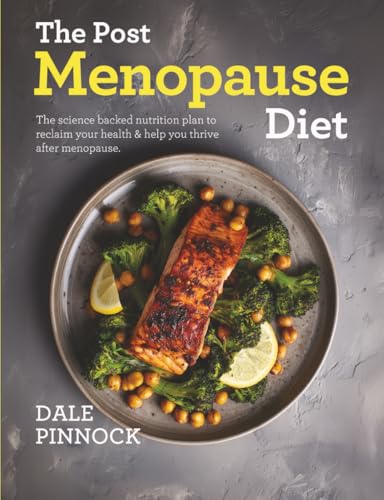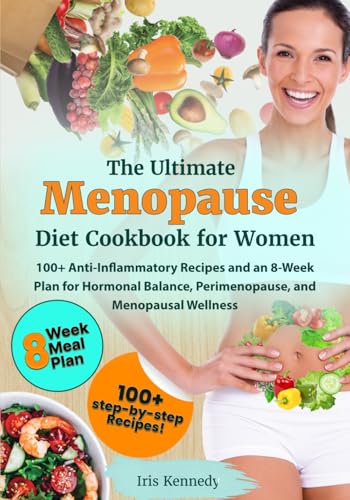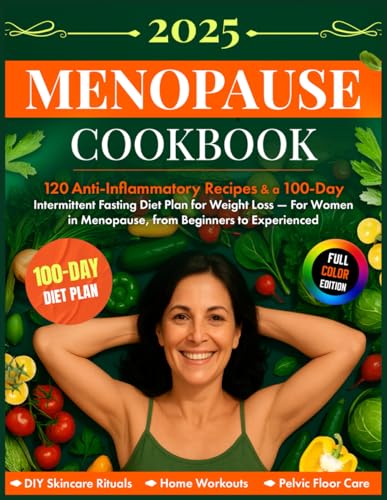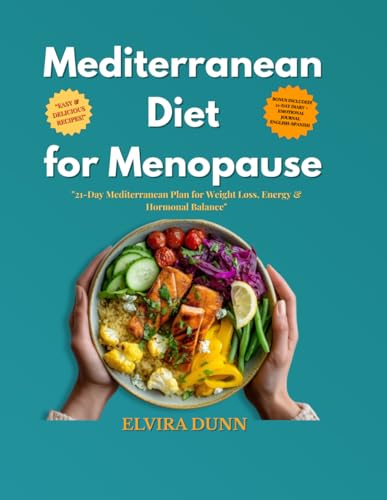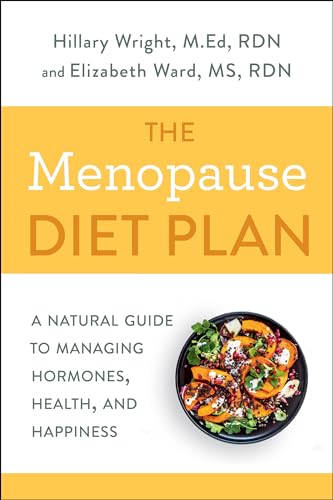Menopause is the time in a woman’s life when periods start to become less frequent, and eventually stop altogether. Menopause usually occurs from the age of 40 to 55 years, [43] and once this happens, the woman is no longer able to become pregnant naturally.
Symptoms
The majority of women going through menopause will experience at least one of the following symptoms:
- Anxiety
- Concentration problems
- Difficulty sleeping
- Fatigue
- Hot flushes
- Night sweats
- Reduced libido
- Vaginal dryness
Symptoms can vary in their severity, and tend to start from anywhere between a few months and a year before periods stop. They may persist for up to four years afterwards.
Treatment
Bone density is a major problem area for women going through menopause, as their bone density decreases due to lower levels of the hormone oestrogen.
Ensuring you eat enough calcium will help to keep your bones strong. Only 30 per cent of the calcium you eat is absorbed, and certain things can affect this.
Vitamin D is essential to calcium absorption, as it is turned into calcitriol in the body. Without calcitriol derived from Vitamin D, calcium is not absorbed and is instead taken from the skeleton, weakening bones. [44]
Foods to eat for calcium include:
- Soy foods (isoflavone-rich for bone strength)
- Dark leafy greens
- Dairy
- Figs
- Fatty fish (sardines and salmon)
- Almonds
- White beans
In addition to being in the sunshine, vitamin D is present in the following foods:
- Oily fish (sardines, mackerel, salmon, trout, herring, sole)
- Eggs
- Fortified products (milk, soy milk, orange juice and cereal)
- Beef liver
Potassium has also been shown to reduce bone turnover, and should be consumed to keep bones strong [45], although people with decreased kidney functioning may need to limit potassium intake. Foods to eat for potassium include:
- White beans
- Baked potatoes
- Avocado
- Portobello mushrooms
- Bananas
- Fish such as salmon and tuna
- Chicken breast
Swapping out refined white grains for whole grains and cutting down on the amount of sugar in your diet will help to keep your energy levels stable, and stop your blood glucose levels from fluctuating. When sugar is consumed and blood glucose levels get too high, insulin is used to lower the blood glucose levels. This is known as a sugar crash, which can cause anxiety, fatigue, irritability and confusion. It is also beneficial to eat smaller, more frequent meals.
Phytoestrogens, also known as dietary oestrogens, are naturally occurring compounds found in plants that have weak oestrogenic properties. These compounds do this by binding to oestrogen receptors, due to their structural similarity to oestrogen. For this reason, they are used as a natural alternative to Hormone Replacement Therapy (HRT). [48] Soy beans, tofu, tempeh, miso, linseed (flax), sesame seeds, wheat, berries, oats, barley, dried beans, lentils, yams, rice and alfalfa are all examples of phytoestrogens.
Depression
Menopausal depression is one of the most common menopausal symptoms, with 11 to 33 per cent of women experiencing it. Although depression is the result of various different factors, the role that diet plays in mental health is largely ignored.
Tryptophan, an amino acid (the building blocks of proteins), is a precursor to the neurotransmitter, serotonin. Various researchers have linked low serotonin levels to an increased likelihood of depression. [46] A shortage of tryptophan may cause low levels of serotonin, subsequently triggering depression. [47]
Foods high in tryptophan include oats, dairy, red meat, fish poultry, chickpeas, almonds, sunflower/pumpkin seeds.
Although the scientific evidence is unclear, some anecdotal evidence has shown that diets low in omega-3 increase the likelihood and severity of depression. Oily fish, flaxseed, walnuts, soybean and green leafy veg are all high in omega-3.
Eating small amounts of dark chocolate has been shown to increase serotonin levels, and can be effective at improving your mood. [48] However, your chocolate intake can easily become excessive and ultimately detrimental, so eat it in moderation.


